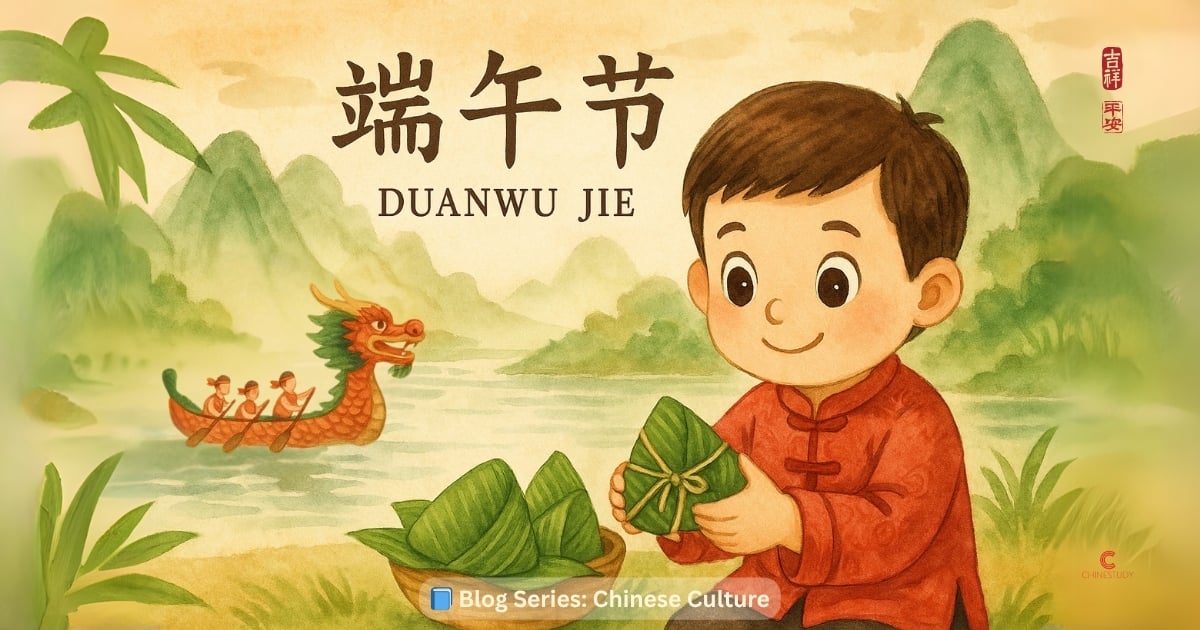🐉 端午节 Duānwǔ Jié – The Story and Traditions of Dragon Boat Festival

Why do people eat sticky rice and race dragon boats every year in China?
Let’s dive into the rich traditions of Duānwǔ Jié and learn how to talk about it in Chinese!
🏮 Festival Name
端午节 Duānwǔ Jié – The Dragon Boat Festival
📅 When Is It Celebrated?
Duānwǔ Jié (端午节) is celebrated on the 5th day of the 5th lunar month.
📜 Story Behind It
This festival honors Qu Yuan (屈原), a patriotic poet from ancient China.
He served the state of Chu during the Warring States period. When his advice was ignored, and his country fell into enemy hands, he was heartbroken and drowned himself in the river.
The locals raced out in boats to save him or recover his body. To keep fish away, they threw rice dumplings (zòngzi 粽子) into the water and beat drums to scare evil spirits.
That’s why today we have dragon boat races and eat zòngzi (粽子).
🎊 How People Celebrate It
- 🛶 Dragon boat racing
- 🍙 Eating zòngzi (sticky rice dumplings wrapped in bamboo leaves)
- 🌿 Wearing scented pouches to keep away bad luck
- 🍵 Drinking realgar wine (雄黄酒) (in some regions)
🗣 Festival Vocabulary & Expressions
- 端午节 (Duānwǔ Jié) – Dragon Boat Festival
- 粽子 (zòngzi) – Sticky rice dumpling
- 赛龙舟 (sài lóngzhōu) – Dragon boat race
- 屈原 (Qū Yuán) – The poet remembered during this festival
🧩 Interactive Practice
Translate this sentence into English:
- 我们在端午节吃粽子。
- Wǒmen zài Duānwǔ Jié chī zòngzi.
Answer:
We eat zòngzi during the Dragon Boat Festival.
🌟 Final Thoughts
Chinese festivals are full of stories, symbols, and love for family and tradition.
Learning about them makes your language skills richer and your heart closer to China.
🇨🇳 Curious about more Chinese traditions?
📚 Step into the blog series: Chinese Culture!
Thank you for subscribing!
Have a great day!